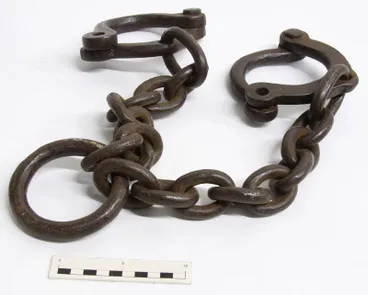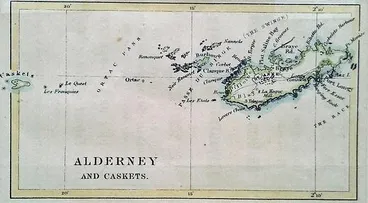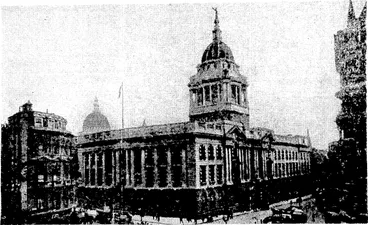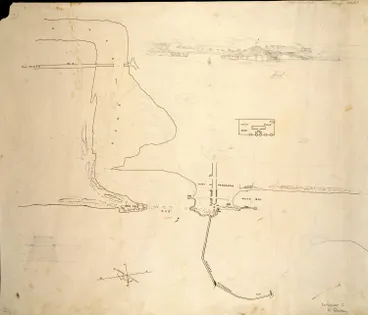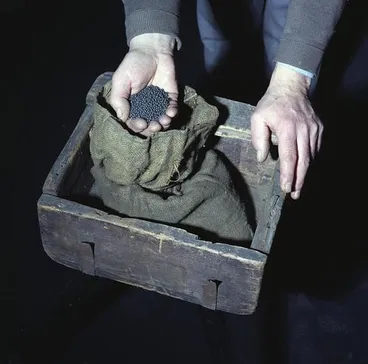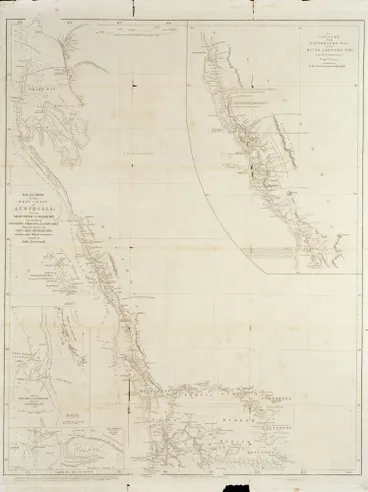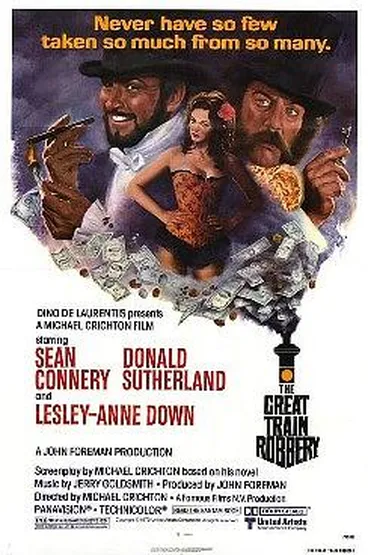Edwin Fox - Convicts to Australia 1858
A DigitalNZ Story by Heather Fryer
In 1858 under the command of Captain Joseph Ferguson the Edwin Fox set off from England on a voyage carrying 280 prisoners from the Portland and Plymouth prisons destined for Fremantle Australia.
A Safe Passage
The ship left 26 August 1858 under the command of Captain Joseph Ferguson joined by Samuel Donnelly the Surgeon Superintendent and J E Henderson a Religious Instructor who also acted as a schoolteacher for the younger convicts during the voyage.
Also on board were a ship's crew including 67 Pensioner Guards and their families. Pensioner Guards were drawn from the British Army and included veterans of the recent Crimean War. In return for their services on board they were given a free passage and guaranteed employment once they reached Australia.
Conditions for the prisoners were cramped and order was maintained by a strict set of rules, failure to comply with those rules could result in a flogging or being put in chains. One such prisoner who fell foul of these rules was Peter Duff, a labourer serving a life sentence for robbery, he was put in leg irons for "complaining in an insolent and improper manner" about the quality of the soup and insufficient rations on board.
The voyage ended with the ship's safe arrival at the Swan River on 22 November 1858. There were no deaths reported during the voyage, but three babies were born on board to the wives of the Pensioner Guards.
Shackle, Leg
Puke Ariki
Alderney Island - the scene of the double murder carried out by Timothy Kelly and Nugent Loughnan. Kelly was transported
Alderney Island
Uploaded by DigitalNZ user Heather Fryer
The location of trials for some of the most serious crimes committed by the convicts on the Edwin Fox
The Old Bailey, properly the Central Criminal Court, on the site of grim old Newgate, which is among the famous London buildings damaged in recent ...
National Library of New Zealand
Town of Fremantle
Auckland Libraries
The Soldier's Return
Auckland Libraries
Harsh Treatment?
Many of the crimes committed may seem to be of a minor nature, however, research has found that many of them were recidivist criminals with some individuals having many convictions.
Hans Jannsen - Stealing Sacks to the value of 1 Shilling and Six Pence, was at the time of conviction described as an old offender which presumably led to the 10-year sentence for this crime.
Edward Peake - Stealing one sheep, 10 years sentence, when he committed the crime he had recently been discharged from Portsmouth Prison for breaking and entering. On arrival to the Edwin Fox he was noted as being of 'bad character'.
George Totterdell - Stealing Clothes, 7 years, 6 previous convictions for theft.
William Cockrane - Theft, 15 years, 6 previous convictions for theft.
Edward Dodd - Burglary, 20 years, a number of previous convictions for theft including stealing a carriage cover and a separate crime of stealing a cabbage!. On release there is a record of a further 7-year sentence for perjury.
Infamous to the Career Criminal
Within the 280 prisoners transported on the Edwin Fox there was the full range of criminal activity and convict from the diabolical, infamous to complete recidivists.
William James Robson - manager of the share transfer department of the Crystal Palace Co and while in that role defrauded the company of about £27,000 (approximately £3.2million today). When the company accountant challenged him he led him home to show him the relevant papers but after showing the accountant into the parlour he fled, he was later arrested in Sweden. At the time of his discovery he was living a very lavish lifestyle which was far beyond the means his salary would support, in fact when the bubble finally burst for him he was in negotiations to purchase a castle in Worcestershire!
William George Tester and James Burgess - members of the gang who committed the first Great Gold Robbery in 1855. Three London firms each sent a box containing either gold bars or coins to Paris via Folkestone and Boulogne, using the South Eastern Railway. The carefully planned theft was carried out during the journey from London Bridge Station to Folkestone. It involved getting access to the three boxes in the secure safes located in the guard’s van using duplicate keys and replacing the bullion in the boxes with a similar weight of lead shot. The theft was not discovered until the boxes were opened in Paris.
A total of 91 kg of gold, worth around £12,000 at the time (approximately £1.4 million today) was stolen.
Peter Campbell - one of five convicts on a work party in Fremantle who escaped into the bush. The police pursued the convicts with the help of Aboriginal trackers. At Point Walter the convicts stole a dinghy and provisions then rowed downriver, on reaching Fremantle they evaded the harbour lookout and rowed out to open water. The police chased them for 800km with the convicts being caught at Shark Bay. Only 4 convicts survived, Stephen Lacey, was murdered by one of the other 4 for reportedly drinking too much of their water supply.
Melville Ellison - Robbery, 10 years, Ellison had 10 previous convictions which included breaking a gas lamp which he admitted to doing so they would lock him up again!. When convicted he was on a Ticket of Leave and had recently returned from a 4 year transportation sentence.
Image: © National Railway Museum, York; The Board of Trustees of the Science Museum released under a Creative Com
The actual box and lead shot from the First Great Train Robbery
Uploaded by DigitalNZ user Heather Fryer
Peter Campbell - Escape to Shark Bay
Campbell and 4 other convicts escaped from Freemantle Prison and led police on a 800 km pursuit ending in Shark Bay
Auckland Libraries
Life After Prison
Stories of life after release vary with some taking the opportunity to turn their lives around while others returned to a life of crime.
John Walker - 6 years for house breaking as well as a number of previous convictions for house breaking was described in his obituary notes as a kind husband, good Templer and an industrious man who was hardworking and willing to help others.
Thomas Pedder - 14 years, arson, after being released from prison he was convicted on 4 March 1863 of the murder of Thomas Sweeny at Irwin River. He was sentenced to death and hung at Perth Goal, 20 March 1863.
Thomas Sweeney was a shepherd who was working on the same farm as he was and Pedder shot him when he thought he was going to be reported for abandoning his post for 4 days and taking supplies without permission.
Looking for Cargo
After discharging her convicts the Edwin Fox lay at anchor for 3 weeks while her convict fittings were demolished, and she was loaded with ballast.
On Christmas Eve 1858 she left Fremantle sailing to Hong Kong seeking cargo with which she could return to England.
